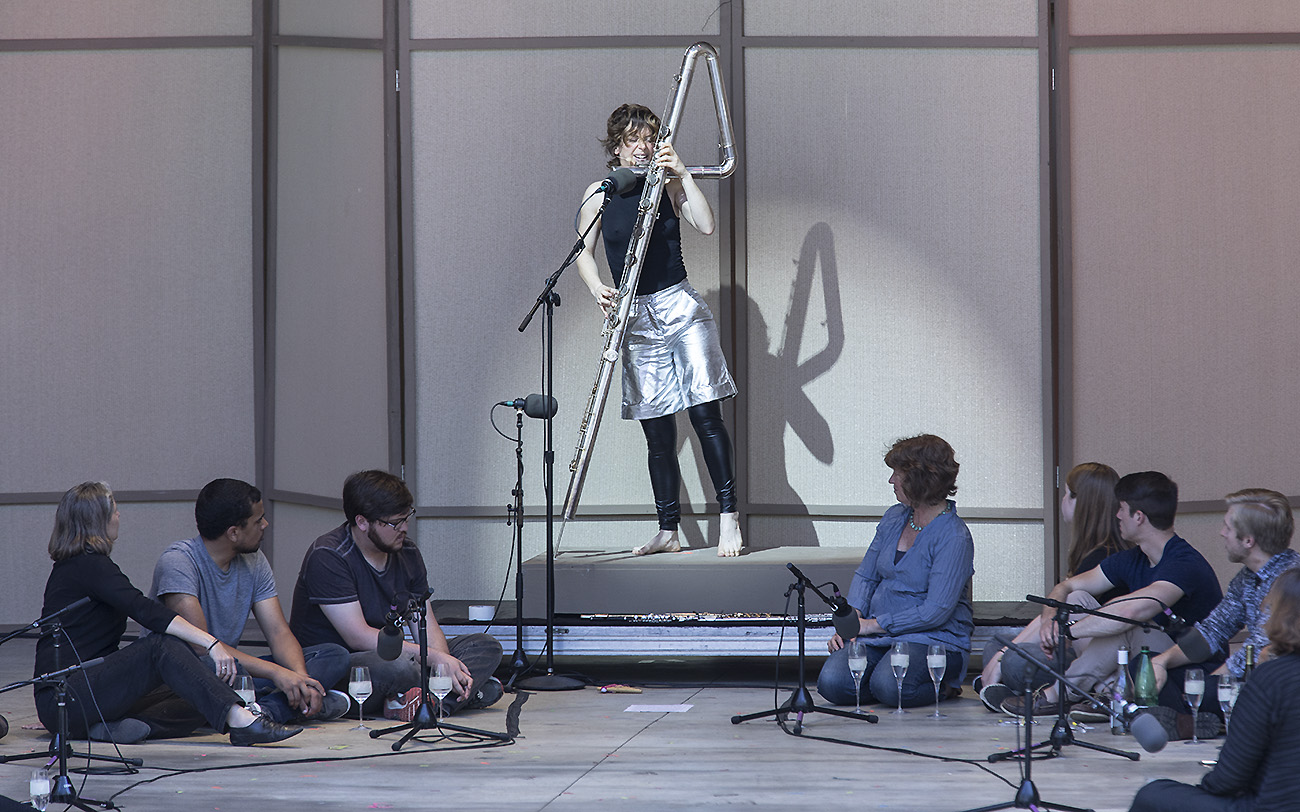2017 Ojai Music Festival
Music Director Vijay Iyer Embraces Many Forms

Proving once again that for the truly fearless, nothing is impossible, the 2017 Ojai Music Festival effectively erased the boundaries among jazz, classical, traditional Indian music, and more over the course of four sound-packed days in and around Libbey Bowl. Thursday evening’s performances focused first on Music Director Vijay Iyer’s skill as a composer, with two pieces for orchestra, one involving Iyer’s own jazz trio as a musical foil and the other introducing the brilliant violinist Jennifer Koh in a composition titled “Trouble” that could be considered Iyer’s answer to the concerto tradition. Then, after a short break, Iyer returned to the stage with longtime friend and collaborator Wadada Leo Smith for a breathtaking series of duets employing piano, Fender Rhodes, and electronics in counterpoint to Smith’s trumpet. The abstract yet hypnotic sound these two achieve together sent the audience home transported to another dimension even as Smith, who was severely dehydrated and felt faint following the set, was transported to the hospital. After some attention there, he was fine and able to participate in the rest of the weekend without further incident.
Friday evening’s 8 p.m. concert was devoted to the West Coast premiere of Afterword, an opera by George Lewis about the formation of the Association for the Advancement of Creative Musicians (AACM). Written in a contemporary classical idiom, the piece tells an uplifting story of collective resistance leading to creative expression and aesthetic validation. Singers Joelle Lamarre, Gwendolyn Brown, and Julian Terrell Otis brought the ideas and vision of the founders of the AACM, several of whom were in the audience, brilliantly to life. Steven Schick conducted the International Contemporary Ensemble with splendid vigor, drawing deeper meaning out of such lines as “Those who survived the cotton fields of death had no idea at first / How long it takes to come into your own.” Saturday’s late-night offering of Yet Unheard, a chamber opera by New Orleans–based composer Courtney Bryan, demonstrated that Lewis’s breakthrough piece was no fluke — more great African-American opera awaits in our musical future.
When Iyer and his close collaborator Rudresh Mahanthappa took the stage on Sunday afternoon with Zakir Hussain and Aruna Sairam, it was to cement the implicit connection between post-Coltrane improvisation and the traditional music of India that influenced it. Drawing equally on the jazz and Indian idioms, the group produced an intricate music that delivered immediate, earthy pleasure. Iyer has mastered so many musical forms that for him the boundaries among them have simply ceased to exist. May the roads he travels in sound be open to many more musicians in his wake.



